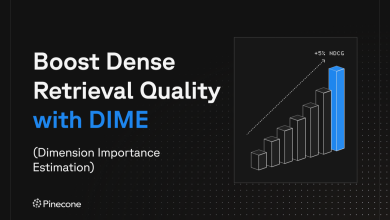
Like all our peers we are seeing seismic shifts in the use of AI within the tech, digital, and advertising industries. The rise of AI isn’t just an evolution – it’s a reckoning.
For all its promise of efficiency, hyper-personalisation, and automation, AI also raises fundamental questions about ethics, trust, and control. Coupled with this is the inexorable explosion in the sheer volume of content being created, and with shifts in moderation policies from some platforms, the curation of where brands are seen and active is now even more necessary.
The Opportunity: Efficiency and Performance at Scale
AI is fundamentally changing how businesses operate. In digital advertising, AI-powered algorithms can optimise campaigns in real-time, ensuring that brands reach the right audiences with the right messages at the right moments. This efficiency is unprecedented, offering not only cost savings but also improved performance, from audience targeting to creative personalisation. Brands and agencies can now leverage AI to streamline media buying, detect fraud, and enhance customer experiences, making advertising more intelligent and effective.
Beyond advertising, AI is revolutionising the broader tech ecosystem. Generative AI is accelerating content production, enabling marketers to create dynamic and engaging assets at scale. Previously, a single ad would be used to reach a wide audience; now this ad can be customised to everybody overnight.
Predictive analytics are helping businesses anticipate consumer behavior with remarkable accuracy, leading to more strategic decision-making. The result? A digital landscape that is smarter, faster, and more responsive than ever before. However, alongside this, we also have the weight of ensuring that our creative copyrights are not going to be infringed upon.
The Challenge: Trust, Bias, and Accountability
Yet, with great power comes great responsibility. AI-driven decision-making is only as good as the data it’s trained on. Bias—whether in hiring algorithms, content recommendations, or ad targeting—remains a critical challenge. In advertising, we must ask: Are AI models reinforcing harmful stereotypes? Are they excluding certain demographics in pursuit of performance?
There’s also the issue of transparency. As AI takes on more responsibilities, how do we ensure accountability? If an AI-driven campaign goes wrong—delivering misleading content, violating brand safety guidelines, or misallocating ad spend—who takes the blame? The industry must establish clear guidelines for ethical AI use, emphasising explainability and oversight.
Ultimately AI can only be used alongside human intelligence.
The Future: Responsible AI as a Competitive Advantage
In this new era, the companies that thrive will be those that embrace AI responsibly. Regulation is coming- whether through government policy or industry self-regulation – and businesses must accept and embrace this. Brands and advertisers will increasingly demand AI solutions that are not only effective but also ethical, transparent, and fair.
The advertising industry has a duty to lead this charge. That means building AI that prioritises privacy, prevents misinformation, and aligns with corporate values. It means ensuring that automation doesn’t replace human judgement but rather enhances it. AI should empower creativity, not stifle it. It should foster consumer trust, not erode it.
The AI revolution is here, and it will continue to reshape our industry in profound ways. Those who wield it with responsibility and foresight will define the next chapter of digital advertising. The question is not whether AI will transform the industry—but how we choose to shape that transformation.




